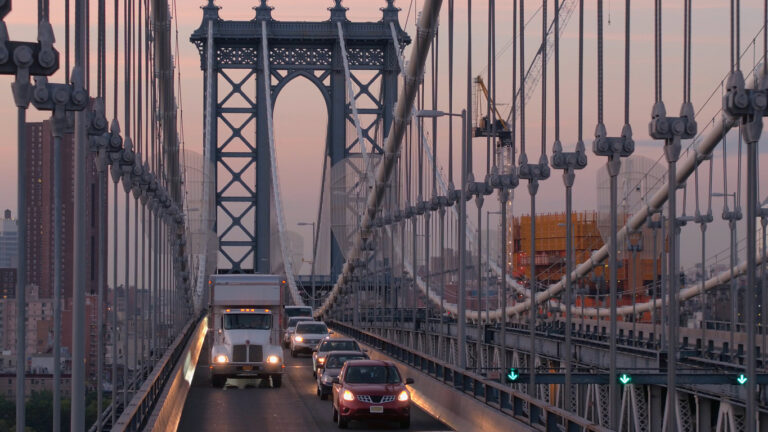NEW YORK — After a decision from the Honorable Judge Lewis Liman of the Southern District of New York (SDNY) to reject the Trucking Association of New York’s (TANY) motion for preliminary injunction against the Metropolitan Transportation Authority’s (MTA) Congestion Pricing Plan, TANY released a statement on behalf of its president, Kendra Hems.
“(The Dec. 23) decision is a direct rejection of the wishes of the nearly two-thirds of New Yorkers who do not support implementing congestion pricing,” Hems said. “The fact is, it is unfortunate that we had to file this lawsuit in the first place. As we have said from the beginning, the disproportionate pricing structure unfairly targets trucking operators (4% of all NYC vehicle traffic) on a per-trip basis, while passenger vehicles (which constitute 87% of all NYC vehicle traffic) are only charged once per day. This burden—which is far heavier for the trucking industry than any other—will have significant downstream impacts on the entire economy.”
In May, TANY filed a lawsuit against the MTA over the issue of raising tolls for drivers. In June, New York Gov. Kathy Hochul indefinitely delayed implementation of a plan to charge motorists big tolls to enter the core of Manhattan, just weeks before the nation’s first “congestion pricing” system was set to launch.
The lawsuit, filed in the Southern District of New York on May 30, argued that the congestion pricing policy unfairly targets trucking and logistics companies, which are charged far higher rates than passenger vehicles. Under the finalized plan, trucks would be subject to a charge of $24 or $36 per trip into the congestion zone below 60th Street in Manhattan, depending on their size, compared to just $15 per day for passenger vehicles. While the goal of the plan is ostensibly to reduce vehicle traffic during business hours, the MTA is also required to raise at least $1 billion per year with congestion pricing, per a legislative directive from Albany — meaning the agency is incentivized to maximize revenue by targeting those with inelastic schedules, like trucks.
“…by not choosing to engage in negotiations with our industry and find a middle ground by introducing pricing parity with passenger vehicles, the MTA has subjected New Yorkers to the likelihood of a quality-of-life crisis in Manhattan—unstocked store shelves, the decimation of New York’s world-renowned restaurant industry, and a lack of immediate access to life saving medications. Especially amidst our ongoing affordability crisis, and with inflation ticking back up again, congestion pricing will be debilitating for the average New Yorker,” Hems said.
New York will become the first U.S. city to join a handful globally with similar congestion pricing schemes, including London, Stockholm, Milan and Singapore, which is credited with pioneering the first such program in 1975.
“We will continue to advocate for the needs of the communities we serve. As such, we will take this challenge as far as we need to,” Hems said.







